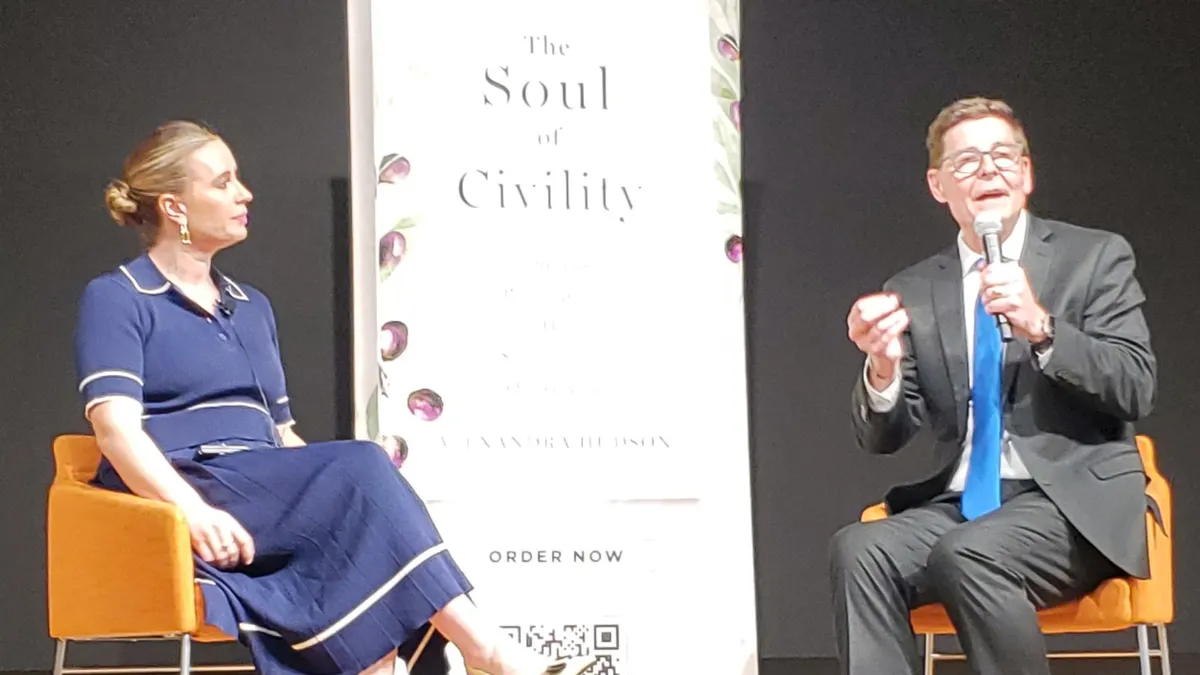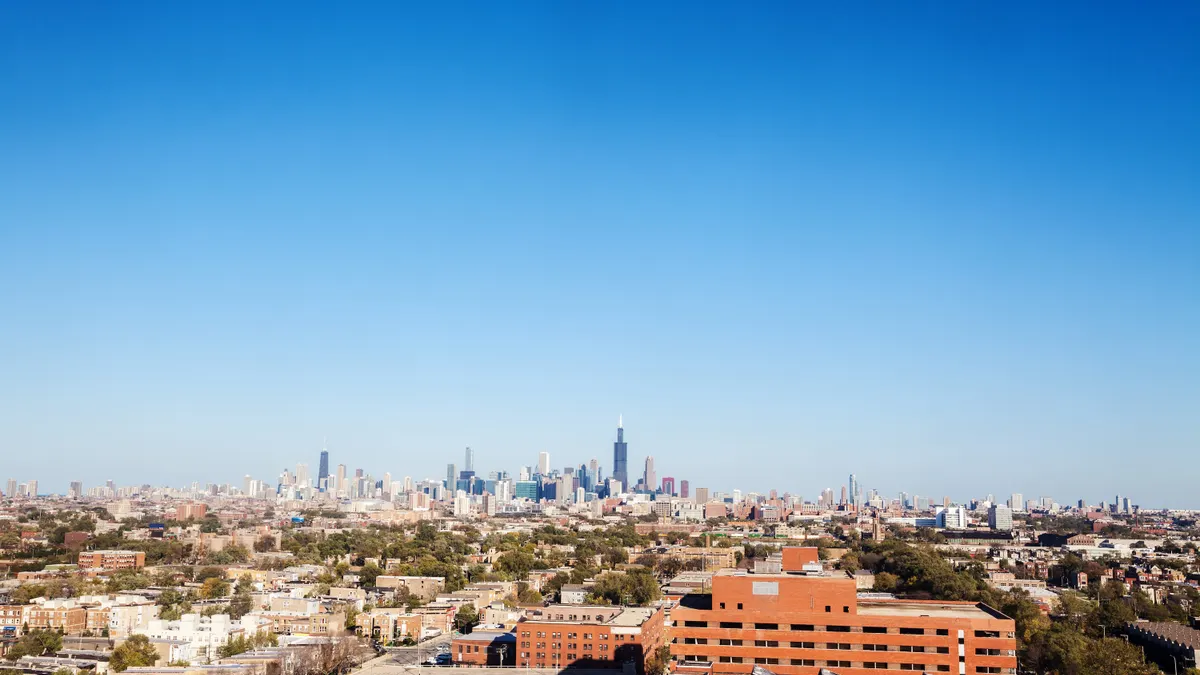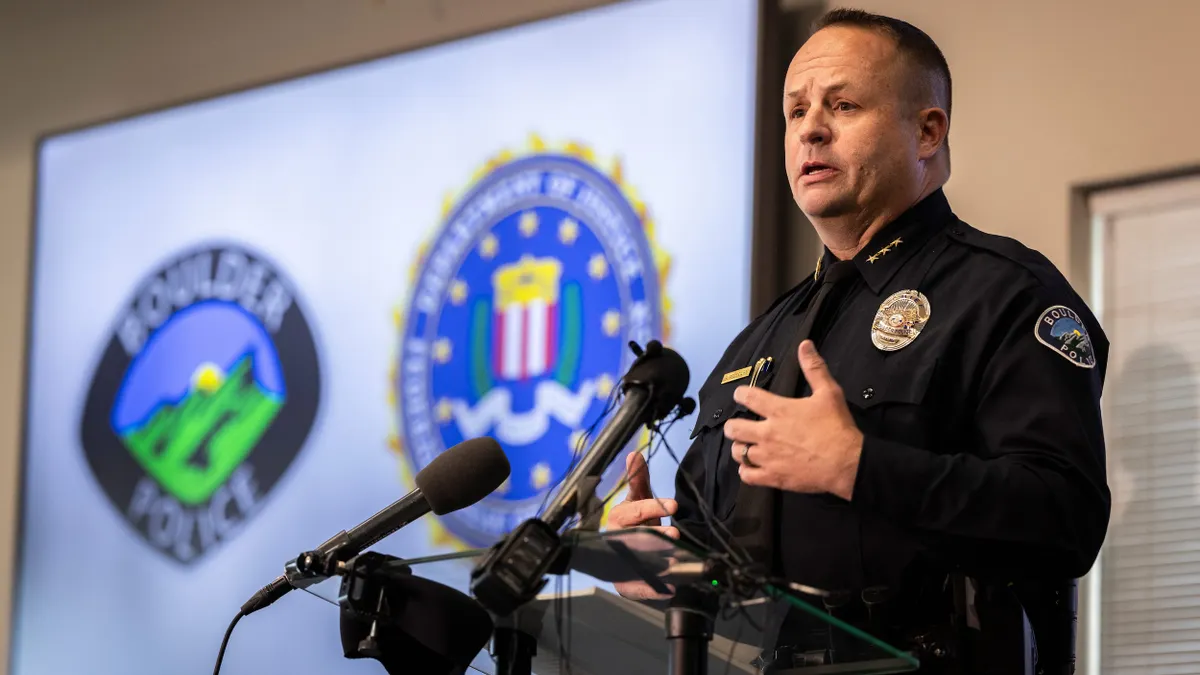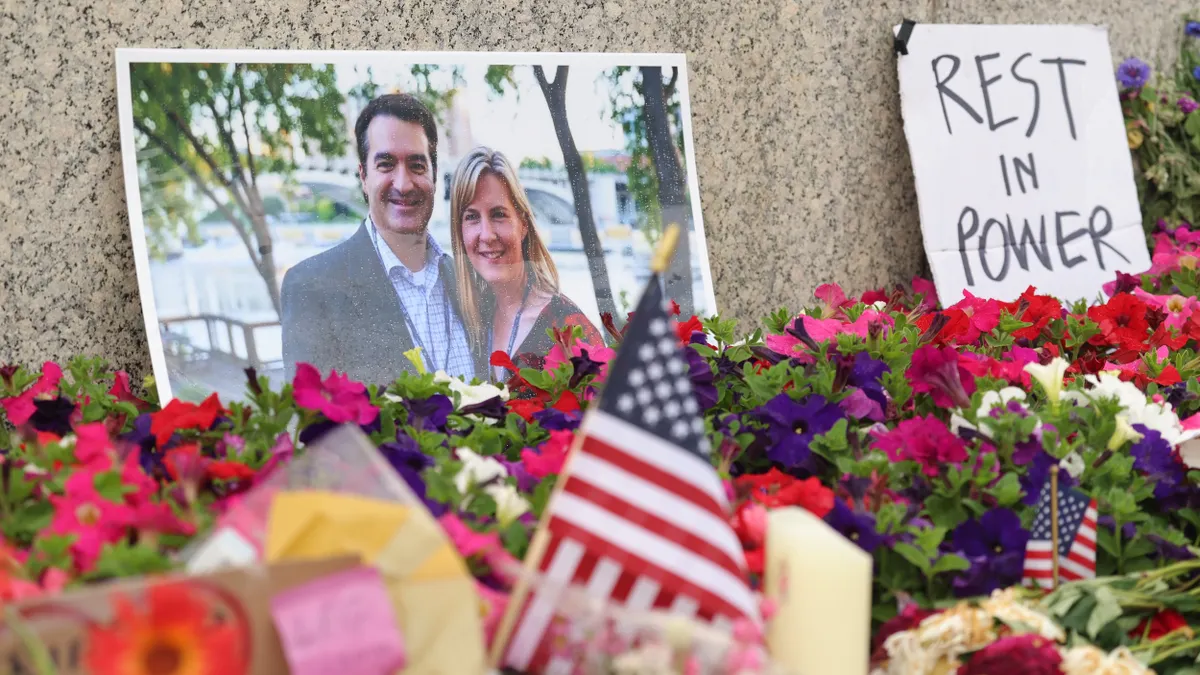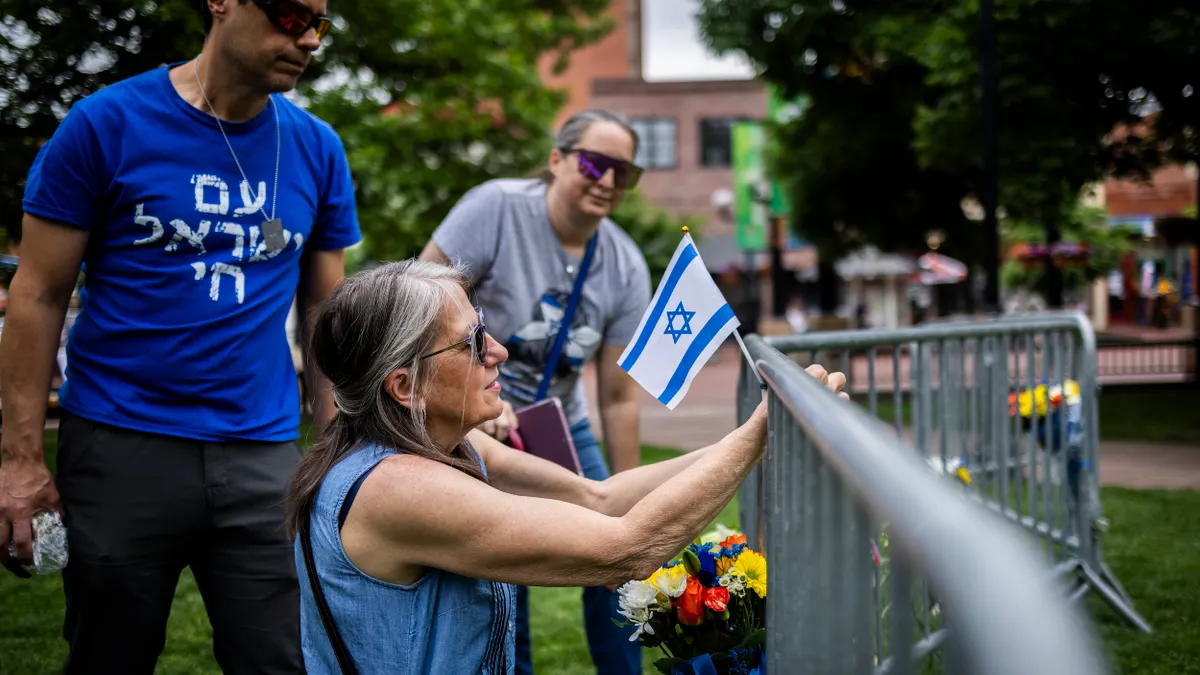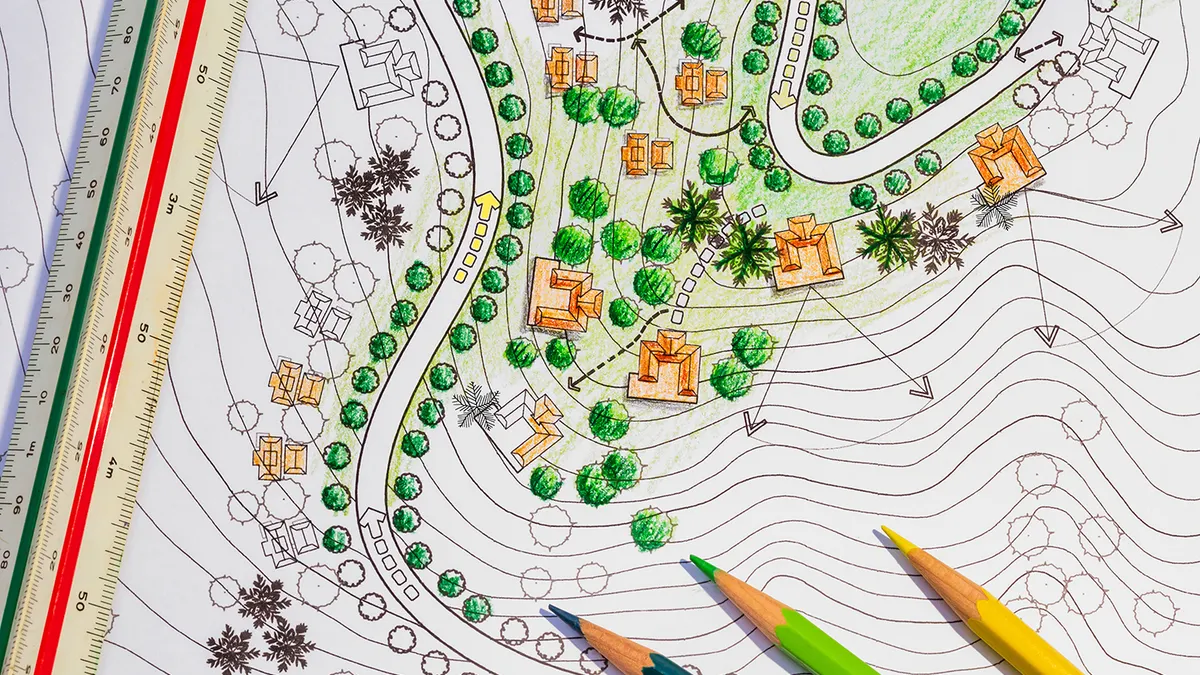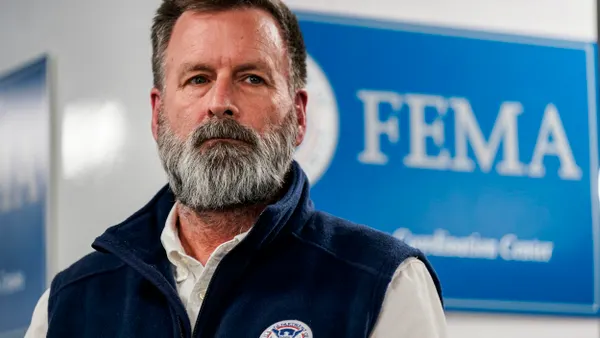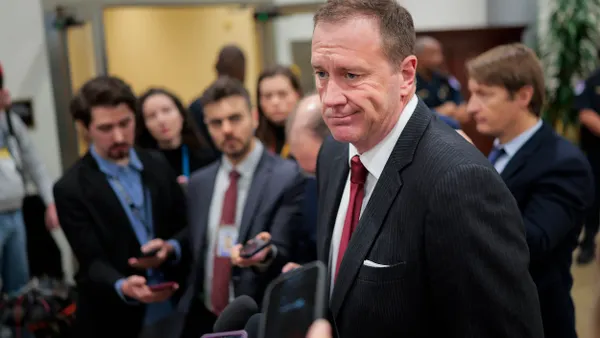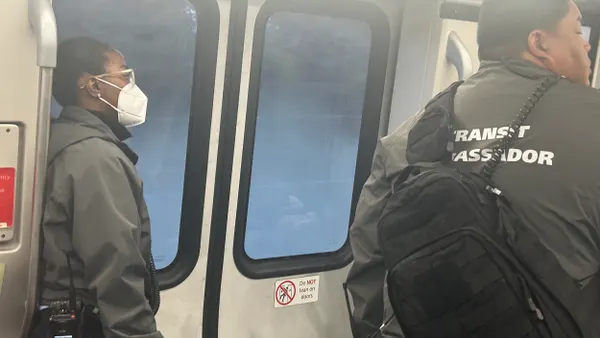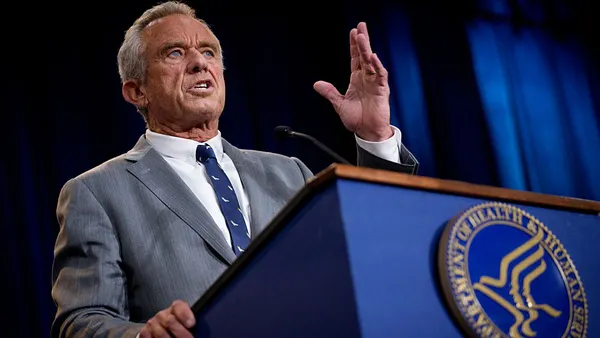Jeff Worrell won his third race for a City Council seat in Carmel, Indiana, a fast-growing Indianapolis suburb, by a comfortable margin in 2023. But the experience left him feeling uneasy.
“It just felt it was a little more vitriolic,” he said. “It was just a little nastier than what I had remembered in previous campaigns.”
Somewhat serendipitously — because, he said, “I’m not a big book guy” — Worrell stumbled across “The Soul of Civility: Timeless Principles to Heal Society and Ourselves,” by Alexandra Hudson. The book spoke to him. He worked with his local library to bring Hudson to Carmel for a reading.
“I set up 35 chairs,” he said, “and 300 people showed up. I realized right then that there was a hunger, that something was wrong but we didn’t know how to fix it.”
By the end of the reading, Worrell said, the audience was “on fire,” pelting him with ideas about how to bring civility back to the community. He recruited a board of directors and formed a nonprofit that he called Project Civility, created a strategic plan and branding. Worrell wrote about the organization in his weekly column in the local newspaper, made videos and gave speeches.
Lori Leander and Lisa Brandt, founders of Colorado Springs-based Reclaiming Civility, reached out and offered to help. They encouraged Worrell to share the concept more widely.
Starting today, Project Civility will host its first Project Civility National Summit, a two-day event in Carmel that will “bring together community leaders and national voices to explore how principled disagreement can be a catalyst for growth, innovation, and the common good,” according to a press release.
Worrell said about 75 local leaders from 16 states will be at the summit to hear from speakers including Hudson, former Indiana governor Mitch Daniels and John Wood Jr, a national ambassador for Braver Angels, a volunteer-led movement to bridge the partisan divide. Workshops and discussions will focus on cultivating community, building civility in cities and fostering meaningful personal connections.
The goal is to “create a network of likeminded organizations around the country who we can share ideas with,” Worrell said. “We are going to define civility. It’s not about being polite. There’s much more to it.”
Civility entails learning how to “disagree better” without hurting or punishing other people or tribalizing, Worrell said. Project Civility has come up with three core operational principles: approach every interaction respecting the other person as a human being, search for common ground when there are disagreements and desire no harm.
In Carmel, Project Civility is making inroads, Worrell said. He gets emails from people who say they disagree with his positions, but are doing so civilly. Residents tell him they understand he has to make tough decisions and thank him for respecting their opinions. Recently, during a heated community meeting, a woman stood up and reminded everyone that Carmel is a civil community. “It just changed the tone of that room,” he said.
With this weekend’s summit, Worrell hopes to carry that momentum to cities across the country. “We’re going to send them home with a ‘Be Civil’ t-shirt, water bottle and hat,” he said, “and we’re going to say, ‘Let’s go ahead and launch a movement.’”



